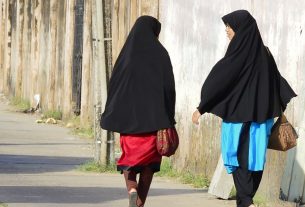Last week the Special Criminal Court (SCC) in the Central African Republic arrested and charged Abakar Zakaria Hamid, known as “SG”, a former Seleka leader for alleged crimes against humanity and war crimes linked to a brutal attack 10 years ago on a church and displacement camp in the country’s capital, Bangui. Seven other individuals have already been arrested and charged in relation to this case.
The May 28, 2014, attack at the Notre-Dame church in Bangui’s Fatima neighborhood remains emblematic of the impunity that has emboldened rival armed groups to commit atrocities across the Central African Republic for over a decade.
Killings had been on the rise in Bangui since December 2013 when anti-balaka militias from across the country took the fight to the capital. The anti-balaka formed as a response to the takeover of the Central African Republic by the Seleka, a predominantly Muslim armed group that had wracked the country with violence. The anti-balaka quickly began to target Muslim civilians, associating them with the Seleka coalition, which retaliated by launching more brutal attacks.
I remember the day I received a phone call from a resident of Fatima as the attack on the church unfolded. He was panicking and said thousands of people were fleeing the neighborhood. I visited the church shortly after and found that 17 people had been killed in the camp, allegedly by fighters aligned with SG and the Seleka. However, the tally was likely higher as some victims were buried immediately. Survivors showed me the spot where Paul Emile Nzale, a beloved priest, had been shot dead.
The attack on Fatima was the first in a long line of egregious attacks on camps for internally displaced people in the country. The Notre-Dame church continued to serve as a displacement camp and was attacked again in 2018, when at least 16 people were killed and many others wounded.
Earlier this year, on the eve of the ten-year anniversary of the attack, I spoke with a family member of one of the victims who said she was still waiting for justice.
By opening this case, conducting fair proceedings, and giving the family of the victims access to justice, the SCC can play a vital role in addressing the widespread impunity that persists in the Central African Republic.



